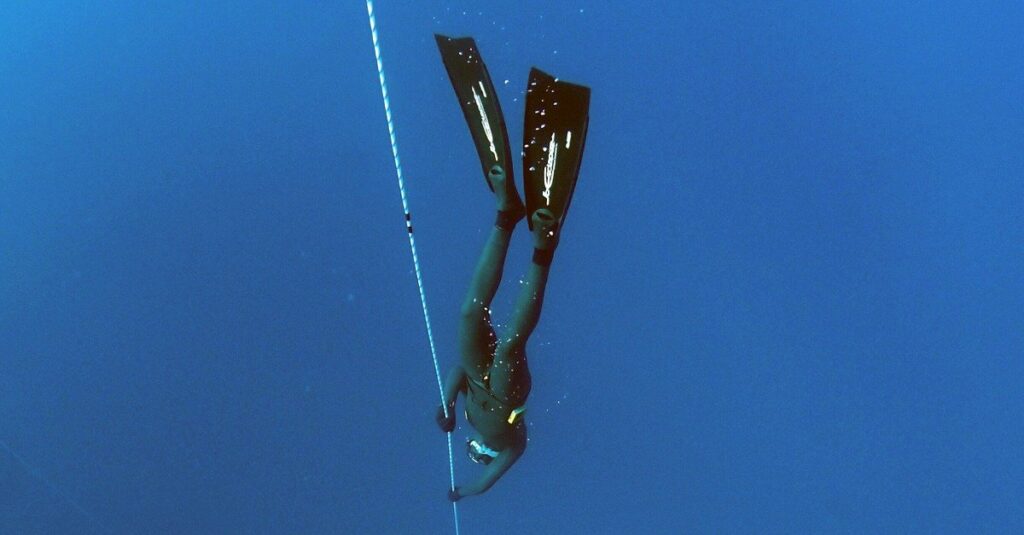

Hoods for freediving are an option which can enhance performance and comfort for some divers but not others. The best way to find out whether hoods are a good choice for you is to try one.
Some freedivers choose to wear hoods in order to make their bodies smoother and more streamlined in the water. This reduces drag and the energy the freediver needs to expend in countering this resistance. Hoods can also help to keep ears dry, which could benefit divers prone to ear discomfort or infection after diving, or those with sensitive ears for whom cold water can cause pain.
The True Story Book of Freediving Champion Audrey Mestre and the Story of Her Death
View on Amazon: The Last Attempt (Opens new tab)


Top rated read
If you’re deciding whether or not to use a hood for freediving, our article can help you choose. We tell you more about the benefits of wearing a wetsuit hood and the options you have to wear one, or not.
Benefits of wearing a wetsuit hood
A hooded wetsuit hood can help to make you more aerodynamic in the water. It gives a smooth, rounded silhouette to the upper body with hair and ears held tightly to the head. This smoother shape cuts down drag so that you can move through the water with greater ease, expending slightly less energy.
Having the hair so tightly controlled may also be a benefit in itself. Longer hair underwater can be an irritation, impeding vision, or becoming entangled with underwater objects, even when tied back. A hood eliminates these risks for a more predictable diving experience.
Hoods in freediving can also help to protect the ears. Some people who are prone to ear infections, or frequent divers who experience irritation from frequent ingress of water to their ears, find that hoods can keep their ears dryer and reduce the chance of discomfort, pain or medical issues.
For some people, the sensation of cold water inside the ears can itself be uncomfortable or painful, and hoods can be a good solution for this group too.
While wetsuits in general can help to keep you warm in colder water, a hooded wetsuit can do this even more effectively. If you feel the cold, or you’re planning a dive in particularly chilly open waters, then a hood could be a sensible choice to to keep you comfortable and enable better performance.
Do I need a hooded wetsuit?
No, you probably don’t need a hooded wetsuit. You may choose to wear a hood if you find it more comfortable, if you feel that you can move more easily in the water with a hood, if the water is cold, or if you feel that it could protect your ears from irritation or infection.
Wetsuits do add buoyancy to the body, and the bigger and thicker they are, the more buoyancy they will add. This can be positive when you want to float on the surface but will require additional energy to overcome the greater buoyancy when you dive under the surface.
If you find that larger wetsuits are adding too much buoyancy and impeding your performance or enjoyment of freediving, you may want to wear something more minimal and avoid hoods when possible.
Some divers also find that wearing a hood can make it harder for them to equalize the pressure in their ears on descent. In this case, you should practice techniques to enable equalization while wearing a hood, or stop using the hood.
